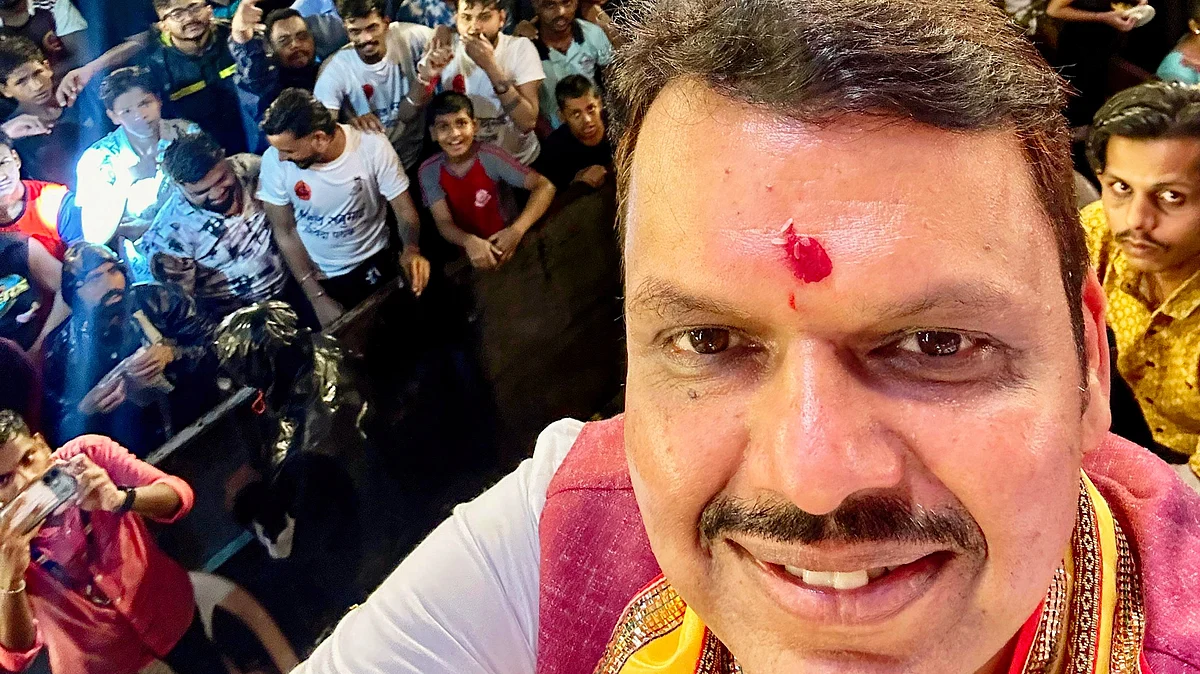Opinion
Imaginary problem, unnecessary Bill
In his bid to push through a Bill to combat 'urban Naxals', Devendra Fadnavis is overriding all legal and Constitutional concerns

We celebrated Independence Day this month, the culmination of our freedom struggle. Independence and freedom from what? From alien rule and from oppressive laws — no matter who imposes them on us.
The governor of Maharashtra, C.P. Radhakrishnan, is currently examining a legislation passed by the state called the ‘Maharashtra Special Public Security Bill’. I have written to the governor, on behalf of Amnesty International India, and asked him to not sign it and instead to deny his assent. Framed as a countermeasure against those who have come to be called 'urban Naxals', the Bill threatens constitutionally and internationally protected human rights.
Naxalism is seen as a decades-old rural and communist-inspired movement. 'Urban Naxalism' in the present discussion presumably refers to alleged support for this movement by intellectuals, academics and others.
The term 'urban Naxalism' has no legal definition in India. With its vague language, discriminatory focus, absence of judicial oversight, and high potential for misuse, the Bill risks criminalising legitimate dissent in one of our largest states. It introduces overboard and ideologically biased provisions that pose an immediate threat to international and constitutionally protected rights.
As may be expected, chief minister Devendra Fadnavis has asserted that the law will not be used to suppress critics of the government. However, if the term 'urban Naxal' has no legal definition in India, then what is it? It is a rhetorical and politically charged phrase — popularised in media and political discourse, not jurisprudence. Its very vagueness allows it to be weaponised against civil society, often conflating peaceful dissent with sedition or terrorism.
Published: undefined
There is a troubling precedent. The Bhima Koregaon case, in which 16 activists were arrested under the Unlawful Activities (Prevention) Act UAPA, demonstrates how this label has been used to detain individuals for years without trial. Many of those accused were not linked to any act of violence, but merely to the expression of critical views, advocacy for marginalised communities, or the defence of civil liberties.
Notably, the arrests began in 2018 during Fadnavis’ earlier tenure as chief minister. Seven years later, trials have yet to commence, bail remains denied to six of the activists, and one of the accused, Father Stan Swamy, died in custody.
The 'urban Naxal' narrative has dangerously blurred the line between non-violent political opposition and violent extremism. Such conflation is not only incompatible with India’s constitutional values but also violates its international legal obligations.
The law has other troubling elements, such as discrimination. Its opening paragraphs identify “Left Wing Extremist organisations or similar organisations” as its focus. This singles out ideologies for criminalisation and violates Article 26 of the International Covenant on Civil and Political Rights, which guarantees equal protection under the law regardless of political opinion, and which India is a signatory to. Punishing membership to an organisation solely based on ideas without proof of incitement of, or participation in, violence is also violative of Indians’ rights.
The law defines “unlawful activity” using imprecise and subjective terms such as “menace to public order” or “tendency to interfere with the administration of law”. These definitions could encompass peaceful protest or civil disobedience, the foundational elements of our freedom struggle.
Section 3 empowers the executive to declare organisations “unlawful”, with no provision for prompt and impartial judicial review. The Advisory Board tasked with reviewing such declarations comprises only government appointees, meaning they will be kangaroo courts.
Sections in the law permitting searches and seizures based on an officer’s “opinion” or “personal knowledge” strip away judicial safeguards and open the door to arbitrary action. This violates the rights guaranteeing fair trial and due process in searches, protecting individuals against unlawful interference with one’s home, property, and privacy.
Published: undefined
Section 14 prohibits appeals, while Section 17 provides blanket immunity to government officials, even in cases of abuse. Such clauses eliminate accountability.
As has become the fashion, colonial-style oppression on jailing people is present in this law also. Section 15 renders all offences under the Bill non-bailable and cognisable, despite the vagueness of their definitions. This facilitates prolonged pre-trial detention without judicial scrutiny.
On top of everything else, the law isn’t needed: India already possess very restrictive counterterrorism and criminal laws, including the UAPA, MCOCA, and Bharatiya Nyaya Sanhita, which criminalise the same or similar alleged conduct. The new Bill adds another weapon to suppress dissent, turning the legal process itself into punishment and further eroding civil liberties.
If signed and enforced, the law under the guise of security represents a grave and unnecessary expansion of state power at the cost of fundamental rights. Far from safeguarding Maharashtra, it criminalises dissent, debate, and accountability.
The misuse of vague terms like 'urban Naxal' has already caused immense harm. Assenting to this Bill would legitimise a framework that enables abuse and impunity over justice.
This is why I have urged the governor, with the utmost respect, to withhold assent to the Bill. The observation of Independence Day should not be restricted to the symbolism of flag-raising and saluting and long speeches. What should be observed is our continuing commitment to freedom, the protection of civil liberties, the preservation of human rights and access to justice. This law is a violation of all of these and for this reason, one hopes it is not inflicted on Indians.
Views are personal. Read more of Aakar Patel's writing here
Published: undefined
Follow us on: Facebook, Twitter, Google News, Instagram
Join our official telegram channel (@nationalherald) and stay updated with the latest headlines
Published: undefined